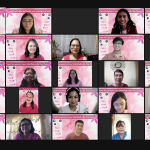Like a thief in the night, suicide snatches away lives with little to no warning and once it has been done, it may be too late to save its victims. Every year, close to 800,000 people from all over the globe die from suicide. This alarming rate has been rising for the past years, becoming an important health issue nowadays.
In the past decades, the level of public understanding on the topic of mental health bordered on the taboo, thus alienating Filipinos who suffer from mental illnesses and denying them the proper medical attention that they need to overcome their struggles. It was a stereotypical notion that when people suffer from a mental health problem, they are maliciously labelled as psychotic, treated as if they should be placed in a psychiatric hospital, and nothing can be farther from the truth than these erroneous beliefs.
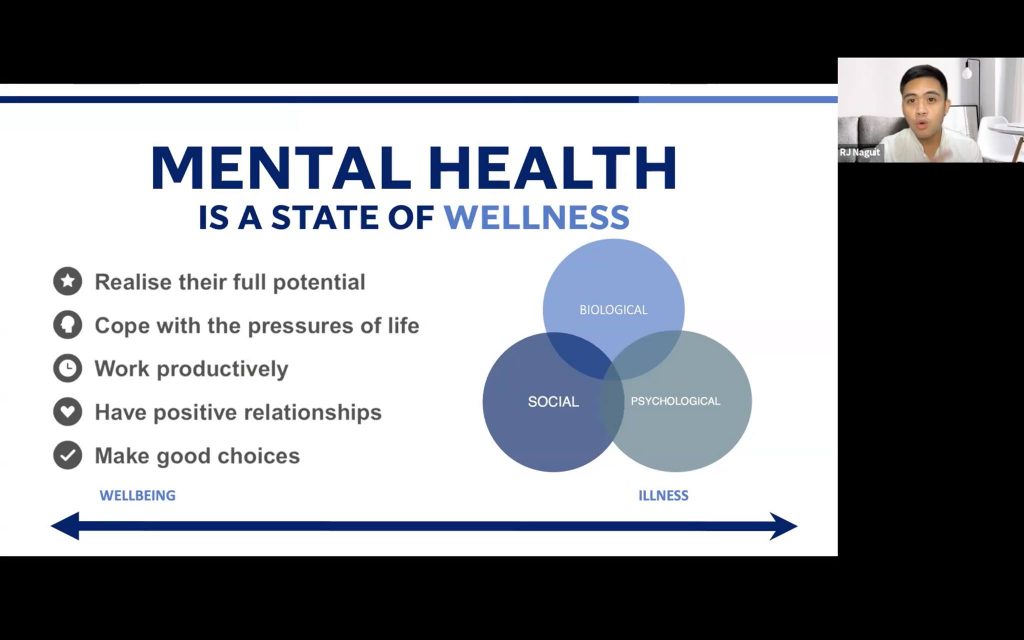
Back then, people were not aware of how wide the spectrum of mental health issues can be and how it is not contained in just a single disorder. Thanks to the growing conversations and rising efforts on elevating the conversations on the complexity of this topic, a better number of Filipinos are getting informed and educated. However, greater awareness does not immediately translate to lesser cases, but it can be a good factor in pushing for more mental health services that are genuinely accessible to all Filipinos, regardless of economic status.
In the traditional Filipino community, people who died of illnesses like cancer are hailed as heroes and warriors for their bravery in battling their health crisis, but unfortunately it is opposite for those who died of suicide. Being in a religious and conservative country, those who commit suicide are shamed and in some cases, families would choose to keep it a secret. But just like any other illnesses, mental disorders also have an end stage which can lead to death, by way of suicide. However, unlike terminal stage cancer, with proper medical and social intervention, deaths from suicide can still be prevented.
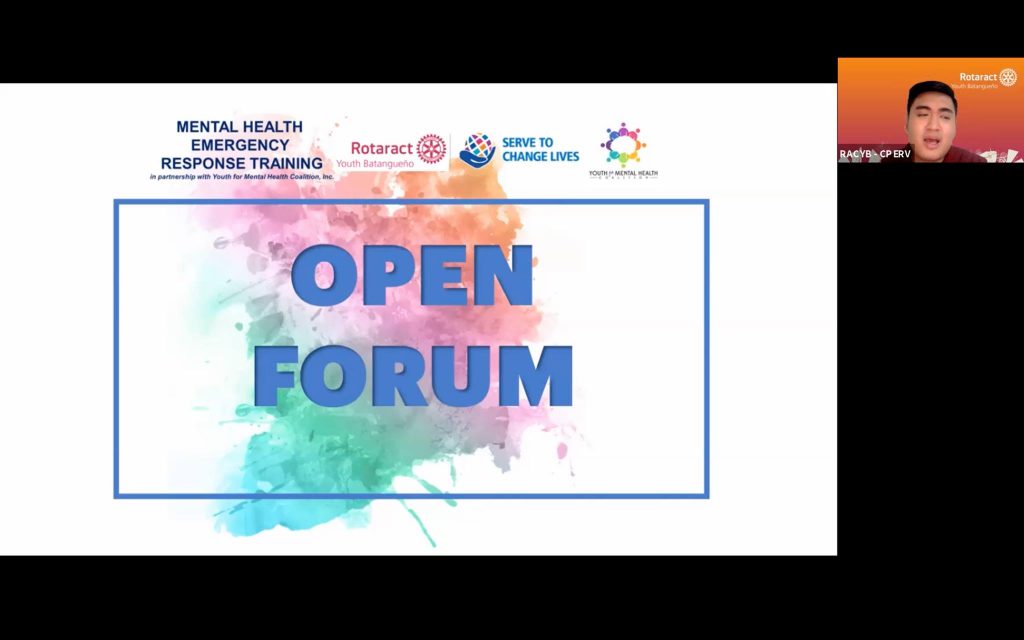
Conversely, preventing suicide may not be a simple task but is both crucial and beneficial especially when taken seriously by the people closest to those who are battling mental health crises. It really pays to check one’s family and friends. Preventing suicide starts with opening the conversation about it, direct and outright. It is best prevented when people accept the reality that is happening and that it should be a subject of discussion without fear and hesitation.
Taking a step further in being part of the solution, the Rotaract Youth Batangueno held a Mental Health Emergency Response Training in partnership with the Youth for Mental Health Coalition Inc. (Y4MH) last September 18, 2021 with Dr. Raymond John Naguit, Y4MH’s board president as the trainer and lecturer. Going beyond mental awareness is the driving motivation of the Rotaract in launching this first of its kind capacity building event which was held in line with the National Suicide Prevention week.
Different from the other webinars that are held and organized by many youth organizations that focus mainly on statistics and basics of mental health, this training highlighted the importance of suicide prevention. Through the expertise of the guest trainer, the participants were able to learn the step by step and medical research-based approach on how to distinguish the early signs from people who are likely to inflict fatal harm and how to properly prevent them from succeeding in doing so.
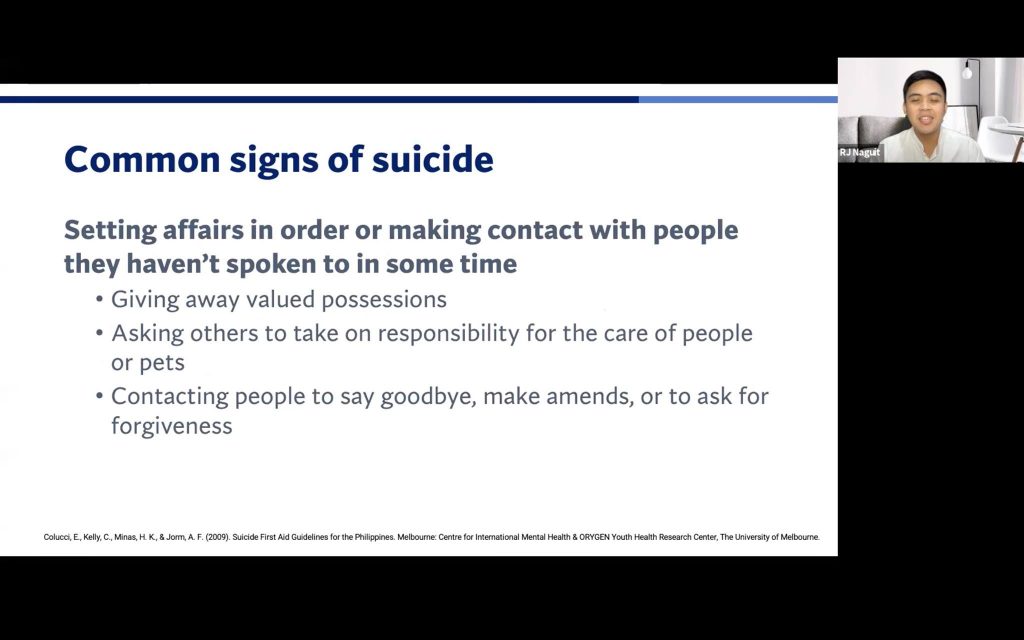
Though it was pointed out that diagnosis of mental health disorders should solely be performed by licensed medical specialists, it does not harm still to educate the lay people on safe practices that they can do when trying to help someone who may be at risk of committing suicide. Conviction is key to suicide prevention, hence, sugarcoating one’s effort to help others would not be effective, being direct is alright because you can, and you care.
Moreover, the training also featured the protocols that should be followed when confronted with a suicide threat, putting emphasis that time is of the essence when saving a life. The seminar was attended by the Rotaract members as well as partner Rotaractors from different districts.
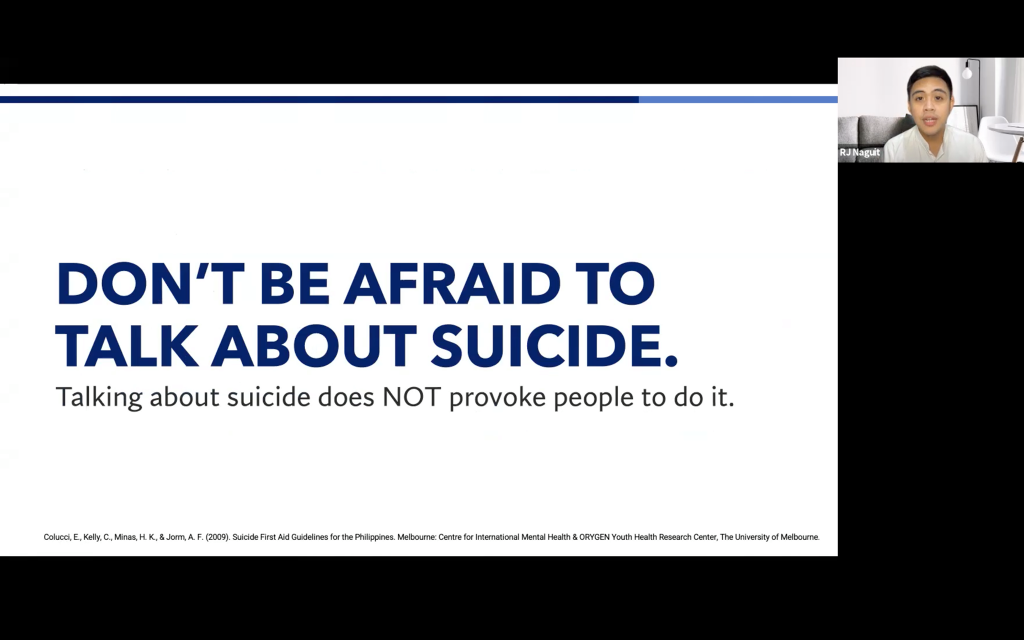
The event’s open forum proved to be the most memorable part as it enabled the participants to raise their concerns and share their first hand experience, may it be either as someone who tried to prevent others from committing suicide or as someone who actually committed the act but failed, a failure that definitely turned out to be good as it gave someone another chance.
Dr. Naguit ended the training with a remark saying that help is always available and that each individual can be the reason why someone is still alive because they knew what to do at the exact time that it was needed. After all, it is always better to listen to someone’s sorrow while they are alive rather than attending their funeral thinking they could have done something to save them.

